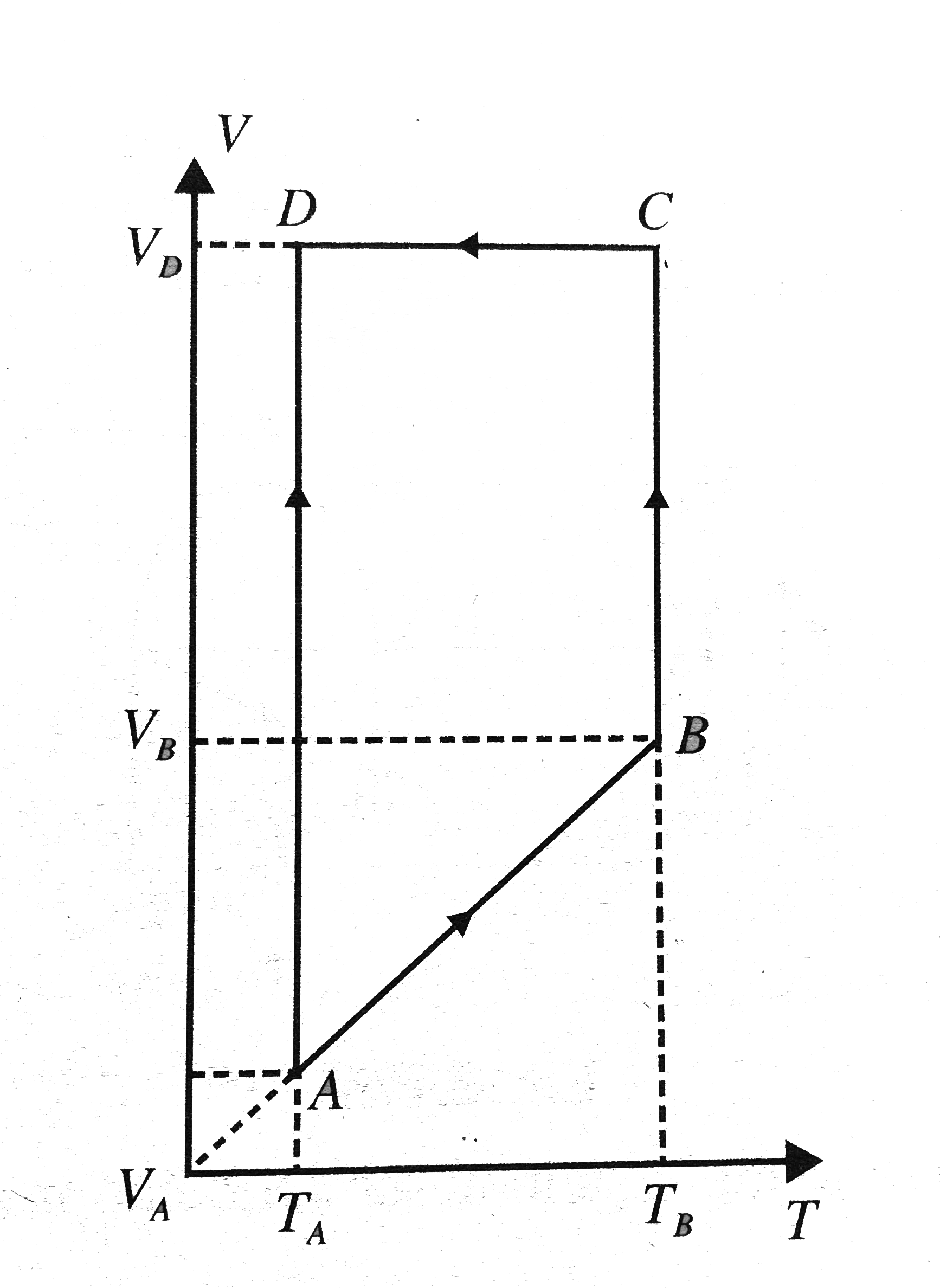A truck accelerates from speed v to 2v. Work done in during this is
three times as the work done in accelerating it from rest to v
same as the work dine in accelerating it from rest to v
four times as the work done in accelerating it from rest to v
less than the work done in accelerating it from rest to v
The correct Answer is:A
To solve the problem of work done when a truck accelerates from speed v to 2v, we can use the concept of kinetic energy. The work done on the truck can be calculated using the change in its kinetic energy.
1. Understand Kinetic Energy:
The kinetic energy (KE) of an object is given by the formula:
KE=12mv2
where m is the mass of the object and v is its velocity.
2. Calculate Initial Kinetic Energy:
When the truck is moving at speed v, its kinetic energy KE1 is:
KE1=12mv2
3. Calculate Final Kinetic Energy:
When the truck accelerates to speed 2v, its kinetic energy KE2 is:
KE2=12m(2v)2=12m(4v2)=2mv2
4. Determine the Change in Kinetic Energy:
The work done W on the truck during the acceleration from speed v to 2v is equal to the change in kinetic energy:
W=KE2−KE1
Substituting the values we calculated:
W=2mv2−12mv2
W=2mv2−0.5mv2=4mv22−1mv22=3mv22
5. Compare with Work Done from Rest to Speed v:
The work done W0 to accelerate the truck from rest to speed v is:
W0=12mv2
6. Relate Work Done:
Now, we can express the work done from v to 2v in terms of W0:
W=3×W0
where W0=12mv2.
7. Conclusion:
Therefore, the work done in accelerating the truck from speed v to 2v is three times the work done in accelerating it from rest to speed v.
Final Answer:
The work done in accelerating the truck from speed v to 2v is three times the work done in accelerating it from rest to speed v.
---
The kinetic energy (KE) of an object is given by the formula:
KE=12mv2
where m is the mass of the object and v is its velocity.
When the truck is moving at speed v, its kinetic energy KE1 is:
KE1=12mv2
When the truck accelerates to speed 2v, its kinetic energy KE2 is:
KE2=12m(2v)2=12m(4v2)=2mv2
The work done W on the truck during the acceleration from speed v to 2v is equal to the change in kinetic energy:
W=KE2−KE1
Substituting the values we calculated:
W=2mv2−12mv2
W=2mv2−0.5mv2=4mv22−1mv22=3mv22
The work done W0 to accelerate the truck from rest to speed v is:
W0=12mv2
Now, we can express the work done from v to 2v in terms of W0:
W=3×W0
where W0=12mv2.
Therefore, the work done in accelerating the truck from speed v to 2v is three times the work done in accelerating it from rest to speed v.
The work done in accelerating the truck from speed v to 2v is three times the work done in accelerating it from rest to speed v.
Topper's Solved these Questions
- WORK, ENERGY AND POWERBOOK - DC PANDEY ENGLISHCHAPTER - WORK, ENERGY AND POWEREXERCISE - MATCH THE COLUMNS
7 Videos
- WORK, ENERGY & POWERBOOK - DC PANDEY ENGLISHCHAPTER - WORK, ENERGY & POWEREXERCISE - Level 2 Comprehension Based
2 Videos
- WORK, POWER AND ENERGYBOOK - DC PANDEY ENGLISHCHAPTER - WORK, POWER AND ENERGYEXERCISE - E Integer Type Questions
11 Videos
Similar Questions
The equation of a state of a gas is given by p(V−b)=nRT. If 1 mole of a gas is isothermally expanded from volume V and 2V, the work done during the process is
View SolutionThe work done against electric in increasing the potential difference of a condenser from 20 V to 40 V is W. The work done in increasing its potential difference from 40 V to 50 V will be
View SolutionThe work done in increasing the P.D. across the plates of a capacitor from 4V to 6V is W then work done in increasing the P.D. from 6V to 8V is
View SolutionOne mole of an ideal gas is allowed to expand reversible and adiabatically from a temperatureof27∘C)if the work done during the process is3kJ,the final temperature will be equal to(Cv=20JK−1)
View SolutionThe work done in increasing the potential of a capacitor from V volt to 2V volt is W Then, the work done in increasing the potential of the same capacitor from 2V volt to 4V volt will be.
View SolutionThe amount of work done in increasing the voltage across the plates of capacitor from 5 V to 10 V is W. The work done in increasing it from 10 V to 15 V will be
View SolutionWork done in time t on a body of mass m which is accelerated from rest to a speed v in time t1 as a function of time t is given by
View SolutionA particle of mass 2kg travels along a straight line with velocity v=a√x, where a is a constant. The work done by net force during the displacement of particle from x=0 to x=4m is
View SolutionThe equation of state of a gas is given as P(V-b)=nRT, where b is constant ,n is the number of moles and R is the universal gas constant .when 2 moles of this gas undergo reversible isothermal expansion from volume V to 2V ,what is work done by the gas ?
View SolutionA monatomic idea gas of 2mol is taken through a cyclic process starting from A as shown in figure. The volume ratio are VB/VA=2 and VD/VA=4. If the temperature TA at A is 27∘C, and gas constant is R. Calculate.

The total work done by the gas during the complete cycle.
View Solution
